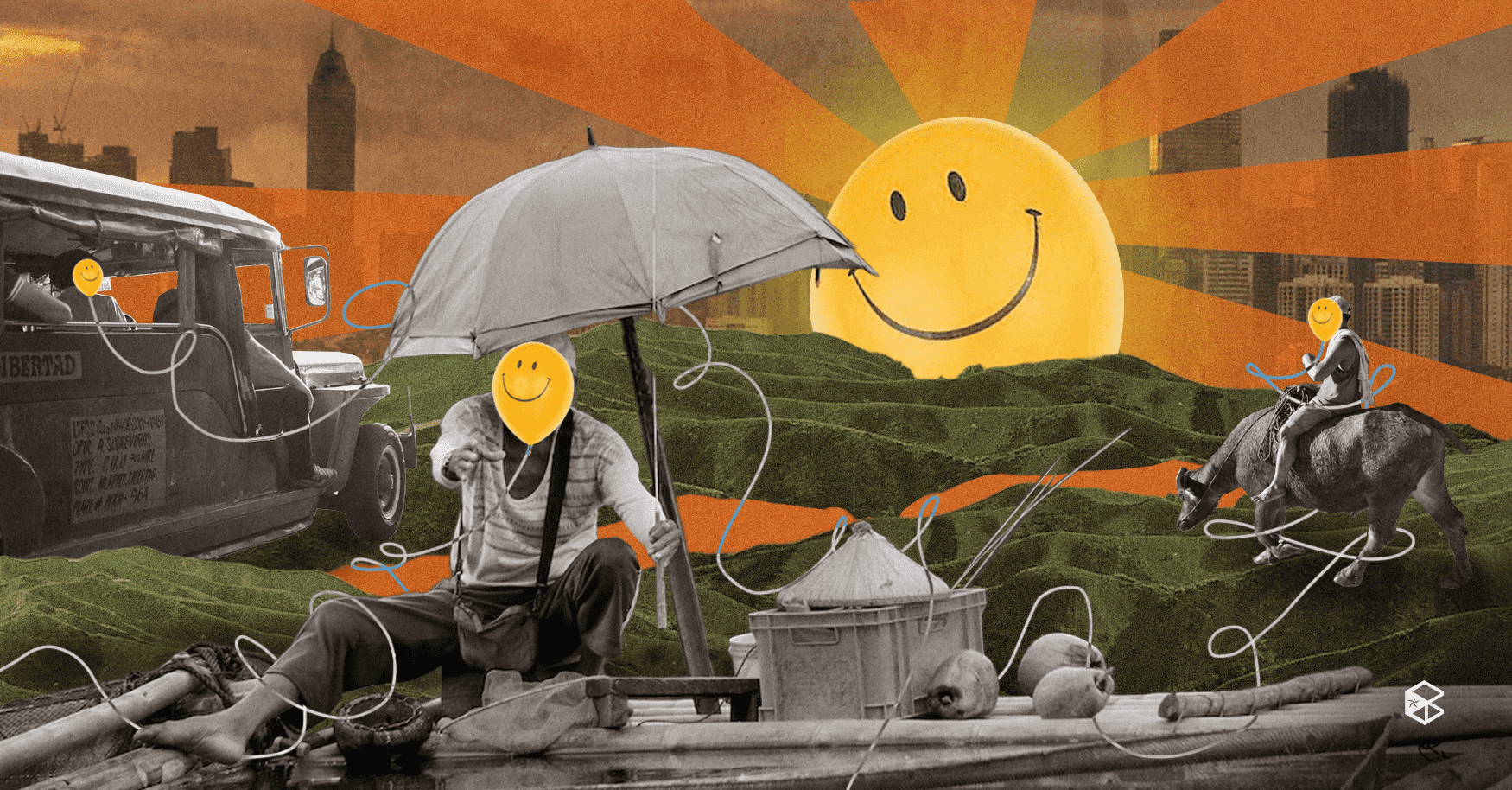The Happiness Index is a metric used to measure people's subjective well-being and overall happiness levels in different countries. The study is a product of the Sustainable Development Solutions Network, a United Nations global program. According to the 2022 World Happiness Report, the Philippines ranked 60th out of 146 countries, up from 61st in the previous year's report, making it the second happiest nation in Southeast Asia after Singapore.
The Philippines ranking on World Happiness Report for the past five years are as follows:
2022 - 60th place with a happiness index of 5.904
2021 - 61st place with a happiness index of 5.900
2020 - 52nd place with a happiness index of 6.006
2019 - 69th place with a happiness index of 5.631
2018 - 71st place with a happiness index of 5.524
The report, released on the International Day of Happiness last year, March 20, 2022, showed that the Philippines scored high in several key areas that contribute to overall happiness, including social support and freedom to make life choices.
However, the report garnered mixed reactions from Filipinos on social media. Some shared their delight at the country's better placement in the World Happiness Report and expressed their pride at being part of a happy nation. On the other hand, some questioned the report's approach and accuracy. They said the report failed to highlight many Filipinos' real-life difficulties, such as poverty, inequality, and political instability.
The report's methodology relies heavily on data from the Gallup World Poll, which measures people's subjective well-being based on several factors, including income, social support, life expectancy, freedom to make life choices, generosity, and perceptions of corruption.
While these factors are undoubtedly essential contributors to overall happiness, they do not fully capture the challenges and struggles that many Filipinos face on a daily basis. One of the critical issues that the index fails to capture is the impact of poverty on people's well-being.
Despite progress in reducing poverty rates in recent years, poverty remains a significant challenge in the Philippines, with millions of people still living in extreme poverty. Many Filipinos struggle to access even basic necessities such as food, clean water, and healthcare, which can negatively affect their physical and mental health. Poverty can also limit opportunities for education, leaving many children without access to quality education and limiting their prospects for the future. In some cases, poverty can lead to difficult decisions, such as choosing between buying food and paying for necessary medication.
Another factor that is not fully captured in the happiness index is corruption. Corruption is a widespread problem in the Philippines, with corrupt practices occurring at all levels of government and society. It erodes social trust and undermines the rule of law, contributing to a sense of disillusionment and apathy among the populace. Inadequate public services and infrastructure, such as poorly maintained roads and unreliable public transportation, are also some of the many ways that corruption in government can impact people's quality of life. In some cases, corruption can even compromise access to essential services like healthcare. For example, hospitals may lack necessary supplies or equipment due to corrupt practices such as kickbacks or bribes. This can have significant consequences for patients who may not receive the care they need to recover from illnesses or injuries.
Furthermore, the happiness index does not capture the struggles of marginalized communities, including indigenous peoples, LGBTQIA+ individuals, and people with disabilities. These groups often face discrimination, exclusion, and limited access to basic services and opportunities, negatively impacting their well-being and happiness.
It also is worth noting that some people attribute the high happiness index in the Philippines to "toxic positivity." According to UW Medicine, this refers to the excessive and ineffective overgeneralization of a happy, optimistic state across all situations, which can lead to denial or invalidation of negative emotions and experiences. In the case of the Philippines, this could mean that the happiness index does not fully capture the complexities of people's lives. Instead, it reinforces the societal pressure to present a positive outlook at all times, even in the face of hardship. While it is essential to cultivate positivity, it is equally vital to acknowledge and address the challenges people face to promote genuine well-being and happiness.
While the Philippines may be ranked among the happiest countries in Southeast Asia, the reality is that many Filipinos continue to face significant challenges that are not captured in the happiness index. Addressing poverty, corruption, and social inequality is critical to promoting genuine well-being and happiness for all Filipinos.
The 2023 World Happiness Report will come out tomorrow, March 21, at 12 a.m. on its official website. Join the world in celebrating the #InternationalDayofHappiness as we countdown its launch.


